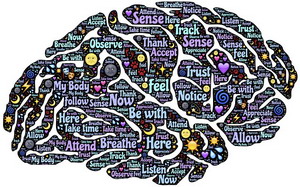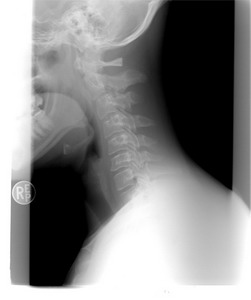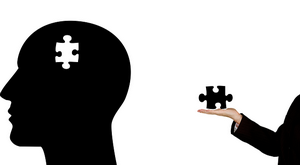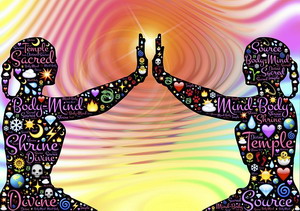Way back in 1972 mind-body interactions were the subject of philosopher’s arguments. No one had any inkling that this subject would have any real world applications. Back then I was a sophomore at UC Davis pursuing a double major in physics and psychology. My goal at that time was to become a parapsychologist. I wanted to understand consciousness and how it participated with the “real” world. I took a course called Mind Dynamics on using the mind to do some pretty amazing things that was offered off campus. It gave me direct experience with just what I was looking for. A fellow graduate of this course several months earlier was Dr Carl Simonton, a medical oncologist who was chief of radiation therapy at Travis Air Force base. Through the instructors at Mind Dynamics, we heard about some of the truly amazing results he was getting by applying the mind techniques he learned to the treatment of cancer. He went on to pioneer the whole concept of the mind-body interaction in healing. Before this time no one was even thinking about such things clinically. This area of thought was occupied by prayer and positive thinking such as taught by Christian Science.

Here we are 46 years later and the idea of mind-body influence on health is widely accepted. Back then there was no evidence of any way the mind could affect health beyond the fight-or -flight model of stress presented by Hans Selye. It wasn’t until the breakthrough work of Dr. Candice Pert, 25 years later, in her book Molecules of Emotion that we got our first glance into how the brain and body are intimately wired together. The same neurotransmitters that create and control emotion in our brain, also control our immune system, our gut, and in fact affect every cell in our body. Feelings are not just something happening in our brain, but are in fact processed throughout our whole body. The science of psychoneuroimmunology was born and MindBody Medicine became a real thing.
I have been fortunate to have been riding this wave of MindBody awareness since it’s very inception. It is why I became a Chiropractor. When I graduated from Davis in 1975, I wanted to be in the health field. But medicine was totally focused on disease and not health. The only other licensed healing art at that time was Chiropractic, and it was all about health, not disease. I had never heard of Chiropractic at that time, but I had learned Touch for Health, which taught me muscle testing and how to begin to reprogram the body for health. When I looked further I discovered the author of that program was a Chiropractor. That was the moment I found my calling.

So what is the point of this long winded introduction and trip down memory lane? The point is that science has woken up to the power and importance of the impact of the mind and emotions on health and disease. When I started this journey, science knew emotions could cause stomach ulcers, but they had no idea how. Now everything in the body has an emotional component to it. The course of every disease and the outcome of every treatment is dependent upon how the brain feels about what is going on. Did you know that the majority of the benefit of every drug is mental (psychosomatic)? When a drug is tested it is compared to a placebo. A drug is considered to be a success when it has a slightly better result than the placebo. What that means in real talk is that the placebo mental effect may have a 50% effectiveness and the drug 10% more. When the result is reported, the drug is said to be 60% effective, but in fact most of the benefit is coming from the mind, not the drug. Our mind is the most powerful pharmacy on the planet.

Why does that matter with structural bone and muscle stuff? It matters because your pain levels and your speed of healing, and your ability to hold together your adjustment is almost entirely dependent upon your mind. Your mind is also the main cause for your body developing aches and pains in the first place. Your feelings control things like the flow of blood to your muscles and organs. If that is restricted even a little bit, you get decreased functioning, spasm, toxicity, and so on. The processing of your feelings directly affects your muscle balance, and without good balance your joints pinch and jam. Your feelings have a huge effect on the proper functioning of your immune system. The big disease of the 21st century is autoimmune disease, and that is all about the proper functioning of your immune system.
Any level you want to take it on, your feelings are a controlling factor in your health. This is why even die hard medical institutions are telling people to do things like mindfulness training, yoga, Tai Chi, meditation, and the like. These practices have been around for thousands of years because they work. Fifty years ago medicine insisted all this stuff was hokum and wishful thinking.

Part of the purpose of this newsletter is to promote your participation in these types of activities. A larger part is to discuss a poorly understood aspect of the mind-body problem – what I call feelings versus emotions. For many people these two words are the same. They are not. Feelings refer to actual here-and-now kinesthetic (in the body) sensations while emotions are re-activations of historical memory-based beliefs and fears. Emotions can evoke feelings, but are not feelings. Emotions are based in the higher brain/mind/memory while feelings are based in the body and brain stem (reptilian mind) and mid-brain.
Here is the reason I bring this up. In my experience it is feelings that impact and control the health of the body, not emotions/the mind. Healing is feeling work, not emotion work. I believe the failure to distinguish this difference has been a major flaw in mind-body research and the reason why some studies show tremendous results and others show little benefit. Researchers don’t realize they are comparing apples to oranges. They think emotions and feelings are all the same thing.

Any of you that have tried to use positive affirmations for health know how difficult it is to get any result with them. Yet with hypnosis, when you bypass the conscious mind, you can do some unbelievable things. Healing techniques that are feeling-based work massively better than techniques that are mentally-based. For instance creative visualizations are popular techniques for many different impacts on one’s life. But if you have had much experience with visualization, you know that a well done effective visualization requires you to get fully immersed with all your senses, not just your visual senses. You need to activate a feeling experience to get benefit from the process. Our visual sense is mostly tied to the mental processing areas of the brain. Conversely our most primitive senses – smell and taste – are mostly processes by the mid brain and brain stem – the feeling areas. Touch and body kinesthetic awareness are also processed there. This is why touch-based therapies are so effective compared to talk therapies. How you feel directly translates to how you move and your postural stance. This is a two-way communication. You can quickly change how you feel just by changing your posture.

This is where the rubber meets the road in my practice. If you don’t like your job, your posture will slump and your head will pull forward. In time this will cause head and neck pain and possibly radiating pain down your arms. You might think you have carpal tunnel, but what you may really have is a job where you are not happy. Your low back instability may have nothing to do with mowing your lawn and everything to do with money worries or family trouble. Each area of your body can express a tension from different areas of your life. This is obvious with stomach ulcers and IBS, but it is just as real with back pain, headaches, joint instability, and even skin rashes. Every symptom you have likely has some component coming from disturbed feelings.
Does this mean you need to run out to a psychologist or psychiatrist? In my experience these are not usually helpful with mind-body issues. These specialties are better at working with the mind / thought stuff. There have been notable pioneers in feeling work from these professions, but this type of work does not seem to fit in the insurance approval system at this time. We need feeling work. That means actually feeling what we feel. We are trained not to feel in this culture. Instead we learn mental tricks to avoid feeling like rationalization, displacement, repression, projection, and a host of others. When I hear these I know the person is stuck in their head and not feeling. If these fail we always have alcohol, cigarettes, food, and drugs to block feelings.

At this point I just want to introduce the subject and communicate how impactful the whole mind-body connection is to health, even for simple things like back pain. The first step is simply to be willing to feel whatever you feel, without a story or an explanation attached to it. Feel into tense or uncomfortable areas in your body and just be present with what ever feeling it carries. Awareness is the first step on the path.
